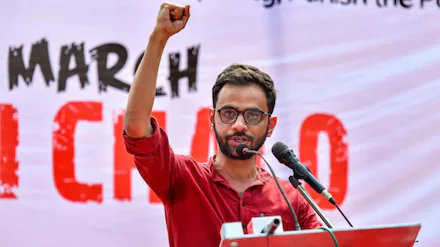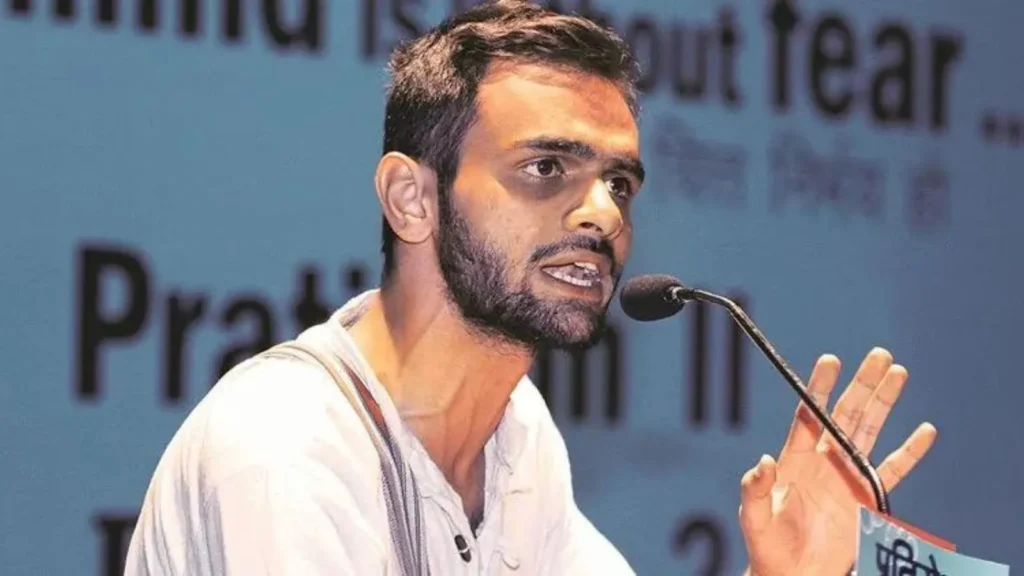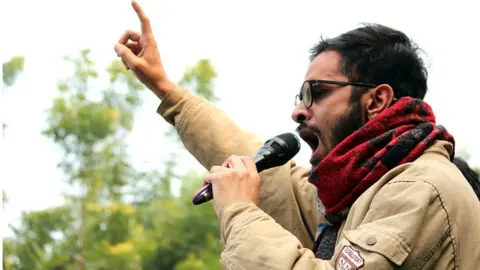| In Short |
| Umar Khalid has been jailed for four years without trial or bail in the 2020 Delhi riots conspiracy case. |
| He is charged under the Unlawful Activities Prevention Act (UAPA), a law criticized for allowing long pre-trial detentions. |
| Supporters, including civil rights activists, argue that Khalid’s detention violates basic human rights. |
| A documentary titled “Prisoner No. 626710” highlights Khalid’s experience in prison and calls for his release. |
| His case continues to raise concerns about the misuse of anti-terror laws to suppress dissent. |
Four years ago, Umar Khalid, former JNU student and activist, was arrested in connection with the 2020 Delhi riots conspiracy case. Charged under the Unlawful Activities Prevention Act (UAPA), Khalid has been behind bars awaiting trial. Despite multiple bail applications, he remains incarcerated, drawing widespread criticism for the prolonged judicial process.
Arrest and Charges
Umar Khalid, along with 11 others, was arrested in September 2020, accused of inciting violence during the Delhi riots that claimed 53 lives. The charges were primarily based on conspiracy allegations, with the prosecution claiming Khalid played a key role in organizing protests against the Citizenship Amendment Act (CAA) that allegedly triggered the riots.

Despite Khalid’s denial of any involvement in violence, he has been unable to secure bail. The Supreme Court has repeatedly emphasized that “bail is the rule, jail is the exception,” but for Khalid, this principle appears to have been overlooked.
Four Years of Detention Without Trial
As of September 2024, Khalid has been imprisoned for four years without a trial. His case has become a focal point for discussions around the misuse of draconian laws like the UAPA, which has been criticized for allowing long pre-trial detentions. Civil rights groups and activists, including prominent figures such as Yogendra Yadav and Swara Bhasker, have vocally supported Khalid’s release, arguing that his prolonged detention is a violation of basic human rights.
On social media, the hashtag #FreeUmarKhalid continues to trend, with many expressing solidarity. Khalid’s supporters see his case as a troubling example of dissent being criminalized in India. In his writings from prison, Khalid has maintained his innocence, framing his arrest as politically motivated.
The Documentary: “Prisoner No. 626710”
Recently, a documentary titled “Prisoner No. 626710 is Present”, directed by Lalit Vachani, was screened to mark the fourth anniversary of Khalid’s arrest. The film, which delves into his life and time in prison, has rekindled public interest in his case. It offers a poignant portrayal of Khalid’s experiences as an incarcerated activist and the emotional toll on his family and friends.
The documentary further amplifies concerns about the judicial delays and highlights the broader issue of activists being targeted for their political beliefs. As public figures and academics rally behind Khalid, his story is becoming a symbol of the ongoing struggle for civil liberties in India.
Calls for Justice
Numerous petitions have been filed urging the courts to expedite Khalid’s trial, with legal experts pointing to the misuse of the UAPA in suppressing dissent. The judiciary’s handling of Khalid’s case has sparked a larger debate about the role of anti-terror laws and their implications on civil liberties.

In a statement from prison, Khalid wrote, “Four years is a long time to be imprisoned without being proven guilty. I have faith that truth and justice will prevail, but it is disheartening to see how slow our system is.”
The Road Ahead
With no trial date in sight, Umar Khalid’s case remains emblematic of the challenges faced by those accused under anti-terror laws. For Khalid, his supporters, and civil rights advocates, the fight for justice continues. As the Delhi riots case drags on, many are left questioning the balance between national security and civil liberties.
Khalid’s situation sheds light on broader concerns about civil liberties in India, as his supporters continue to push for a fair and speedy trial.
For Latest News Updates, Click Here.
